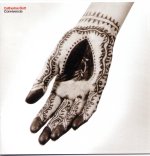Our weekly listen and look at living, breathing composers and performers that you may not know yet, but I know you should… And can, right here and now, since they’re nice enough to offer so much good listening right online:
Andrew McKenna Lee (US)
A native of Charleston, South Carolina, Andrew began his musical studies on the guitar at age twelve, going on to pursue composition in his late teens. He completed his undergraduate work at Carnegie Mellon University in 1997 and finished his Masters degree in 2000 at the Manhattan School of Music. His teachers have included Leonardo Balada, Richard Danielpour, Louis Andriessen, Magnus Lindberg, David Del Tredici and Steven Mackey. He’s currently in the Ph.D. program in composition at Princeton University.
As a guitarist, he’s studied privately with James Ferla and David Leisner, and is currently a student of Laura Oltman at Princeton University. In recent years, his music’s been performed by the Brentano String Quartet, ensemble ereprijs, Talujon, the New Jersey Symphony, Kroumata, Proteus, Janus, and eighth blackbird. He’s participated in numerous festivals, including the International Music Festival of Toroella de Montgrí, Spain, International Gaudeamus Week of the Netherlands, the Stockholm Arts and Sciences Festival, and the Aspen and Norfolk Chamber Music Festivals. His music has also been heard on WNYC’s New Sounds series with host Jonathan Schaefer.
Take a long and leisurely browse through the “Music” link on his sharp-looking site. There are recordings for many, many of his excellent works, and Lee’s own performances on guitar are just phenomenal (for a stunning combination of the two, find his Variation, Fixation, and Fantasy after a Prelude by Bach or his Scordatura Suite).
Missy Mazzoli (b. 1980 — US)
Missy (Melissa) Mazzoli is one of the new wave of scarily smart young composers, who don’t see why their command of the “serious” side of modern classsical should have to sit behind any boundary between it and the culture we actually live in day-to-day. Born in Lansdale, Pennsylvania to a “wonderfully supportive and happily tone deaf family”, she began playing piano at age 7, and composing at age 10. During high school she played piano and percussion with local orchestras and guitar with several punk bands. From 1998 to 2002 she attended Boston University, studying composition with John Harbison, Richard Cornell, Charles Fussell and Martin Amlin, and piano with Maria Clodes-Jaguaribe. In 2002 Missy received a Fulbright grant and traveled to the Netherlands, where she studied with Louis Andriessen, Martijn Padding and Richard Ayres at the Royal Conservatory of the Hague. In 2004 she was composer-in-residence at STEIM, Amsterdam’s center for electronic music, where she created electro-acoustic works for the Utrecht-based Insomnio Ensemble. In May, 2006 she received her Master’s degree from the Yale School of Music, where she studied composition with Aaron Kernis, Martin Bresnick and David Lang. At the “audio” link under her “Contents” menu, you’ll find a number of MP3s well worth your while.
Steve Peters (b. 1959 — US)
Long a force in the new-music scene in New Mexico but relocated to Seattle these last couple years, Steve creates music and sound for galleries, museums, public places, dance, theater, film/video, radio, recordings, and concerts. The work is often site-specific, made with recorded sounds of the environment and found/natural objects, or through exploration of acoustic phenomena; instruments and spoken text occasionally make an appearance. He no longer performs live, except as a member of the Seattle Phonographers Union. Steve also works as a freelance producer, writer and curator, and runs a non-profit called Nonsequitur which presents a monthly series of events related to all of the above.
….And truth told, he’s also a pal of mine from way back; we missed each other at the same college by only a year. He fell into some of my old circle of friends there, sent me a letter or two, and struck up a friendship that’s going on 25 years now. Many of Steve’s pieces of “music” are very long, meaning that the 10- or 15-minute MP3s here are often excerpts; still, they’ll give you a very good idea of his own particularly beautiful, enigmatic sound world.
 All too often today, appealing menus of new music turn out to be measly meals relying heavily on
All too often today, appealing menus of new music turn out to be measly meals relying heavily on 

 The
The  How about a nice round of applause for Jeff Harrington who blogged all three nights of the Keys to the Future Festival. Bravo, well-done and many thanks for giving me an excuse to focus on more lucrative (hopefully) projects this week and to gloat over certain current events. I refer, of course, to the beginning of the return to sanity of American government and the exciting Rutgers victory over Louisville. When West Virginia knocks off Rutgers on December 2, revenge will be complete.
How about a nice round of applause for Jeff Harrington who blogged all three nights of the Keys to the Future Festival. Bravo, well-done and many thanks for giving me an excuse to focus on more lucrative (hopefully) projects this week and to gloat over certain current events. I refer, of course, to the beginning of the return to sanity of American government and the exciting Rutgers victory over Louisville. When West Virginia knocks off Rutgers on December 2, revenge will be complete.